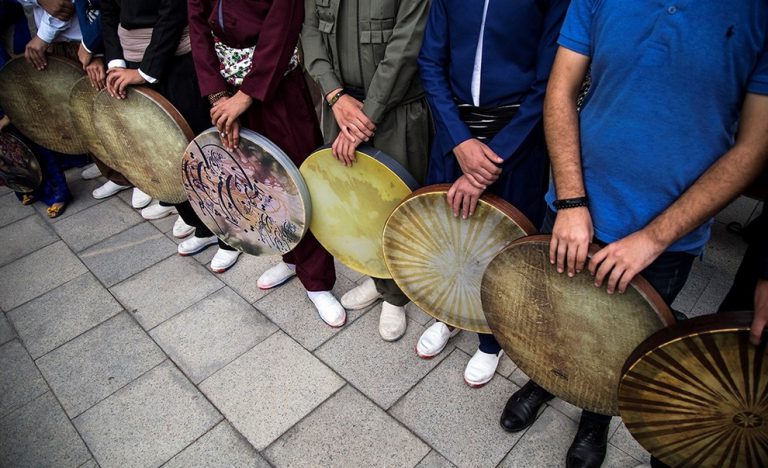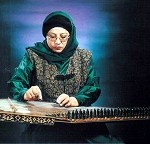The author of the “Illusion or Ingenuity” article, who is apprehensive of the future of the Music in Iran, enumerates some symptoms of the music weakening in the country for example decreasing in the quality of the music as well as lack of the innovation in creating them, a gradual decline in the music public taste and the drop in the application of layered sound and polyphony in music. He explains that one reason for this gradual weakening might be our unawareness of the fact that we are not so intelligent nation. He believes that we, Iranians, have a comprehensive “Illusion of the high national intelligence “that make us ignorant of the unfavorable realities of our music and consequently no searching for the remedy is taking place. His point of view brings to the mind a patient who thinks he is healthy, therefore delays the treatment and finally is killed by the disease. The author also refers to the national difficulties which gradually will lower the national intelligence score such as the increased rate of the immigration and brain drain, low quality of the nutrition, incompetence of the education system and etc and predicts that the condition of the music of Iran might deteriorate in the future because of the mentioned illusion of its great status.
Tag Archives: Illusion
Latest posts
- Transition to Enlightenment: Six Lectures on Mozart’s String Quartets (5)
- Nasser Masoudi: The Voice of Gilan and a Legacy of Iranian Music
- Farhad Poupel: The Voice of the Shahnameh in the Orchestras Around the World
- Five Major Myths About Mozart’s Life
- Bahma Rajabi Passed Away!
- Reza Vohdani; Unveiling unpublished works, preservation of Iranian classical music
- Ahmad Pejman Passed Away!
- Timeless or Timely: The Role of Historical Context in Defining Artistic Value
- Leading the Charge in Censorship
- The Legacy of Khosrow Jafarzadeh
- Transition to Enlightenment: Six Lectures on Mozart’s String Quartets (4)
- Fereydoun Shahbazian, An Iranian Musical Icon Passed Away
From Past Days…

Iranian Fallacies – Global Performance
One of the most important criteria for measuring the quality of a piece of classical music is number of times the piece has been performance by different ensembles and orchestras in different eras. This belief has become so pervasive in some societies, such as Iranian society, that it is considered the only criterion for measuring the quality of a piece of classical music.

Mohammad Esmaili passes away
Master Mohammad Ismaili, a prominent musician and renowned tombak player, passed away on August 13, 2023, after battling an illness in the ICU of Rasoul Akram Hospital. His funeral will take place on Thursday, August 17, at 10 am in front of Vahdat Hall, and he will be laid to rest in the Artists’ Section of Behesht Zahra Cemetery.

Banan: the Artist of the Age
Gholam Hossein Banan was born in 1911 in Tehran. He was born in an affluent art-loving family who were Naser al-Din Shah Qajar (1848-1896)’s relative. The Qajar King was his mother’s uncle on her father’s side. He learnt his first lessons in music while his father sang Iranian avaz (improvised rhythmic-free singing), he then attended classes by the renowned Iranian composer, Morteza Neydavoud (1900-1990) along with his sisters; the composer is, therefore, considered as his first teacher. He then learnt Iranian avaz under the supervision of Mirza Taher Zia Resaee (Zia-o Zakerin) and Naser Seif in an oral manner.

A Promising Concert by National Instruments Orchestra
The National Instruments Orchestra of Iran performed its first concert amid much hope and anxiety on July 18, 2015. The Orchestra is founded by Roudaki Cultural and Arts Foundation which is a semi-private foundation in Iran. The Arts Director for the National Instruments Orchestra of Iran is cand the Orchestra Executive Director is Sadjad Pourghand.

Hassan Kassai, Ney Virtuoso
The name of Maestro Hassan Kassai is so vehemently intertwined with Ney (Persian reed flute) that one cannot imagine one without the other immediately coming into mind. Ney is one of the instruments which went through a lot of ups and downs in the history of the Iranian music since the time of Sassanid kings to the time when shepherds found playing it consoling when they took their cattle for grazing. However, Nay could never demonstrate its main capacities to gain a stable position among the musicians and the people like other instruments including Oud, Tar, Santour, all sorts of bowed string instruments and plucked string instruments.

From Tradition to Trend: The Evolution of Decorative Arts in Iranian Dafs
Daf is one of the percussion instruments associated with the Kurdistan region of Iran, which has a special place in Iranian music. In the past, animal skin was used for the drum head, but now most of the tambourines in the market are made with artificial skin, which are designed with various decorations.

Interview with the Makers of the New Qeychak (II)
Regarding the classification of a new instrument in an instrument family, one can point to a number of fundamental issues, one of the most obvious of which is the instrument’s visual features. If we look at how the new instrument has changed compared to its historical versions, the set of visual elements that link the instrument to the Qeychak family becomes apparent. But other characteristics such as the geometric dimensions of the instrument, characteristics of the instrument’s various parts and how they relate to each other, its systematic performance, its sound range (compared to modern versions), the material and color of the sound, the way it is played and the like, can be considered in order to classify the instrument in the Qeychak family.

Qanun, a feminized instrument?
In the world music culture, there are instruments which were traditionally associated with a certain gender. It remains disputable to what extent these gender-based perceptions have been logical and scientific. For example, as playing wind instruments need more breath strength and the public opinion believe that men have stronger breath compared to women, these instruments are predominantly a male domain. Harp is also considered a female instrument as the public opinion believe that women have finer fingers and can therefore better perform nuances and delicate techniques on the instrument.

Iranian Fallacies – Composition and Arrangement
In the tradition of classical music, it is generally tried to use the same technical terms related to music in all countries. Even in the cultures in which native terms exist to refer to musical terms, usually the better known universal terms are employed.

Farhad Poupel’s piece, Road to Bach, performed at Suntory Hall
On June 19, 2021 , young Iranian composer and pianist, Farhad Poupel’s piece, Road to Bach, was performed at the prestigious Suntory Hall by the great Japanese pianist, Kotaro Fukuma. The piece was commissioned by Kotaro Fukuma to have its world premiere in Suntory Hall during a concert by the same name.